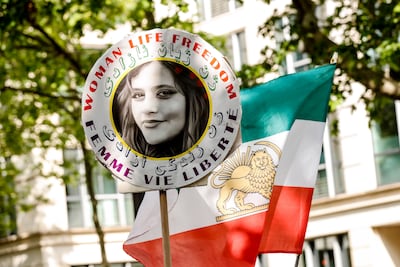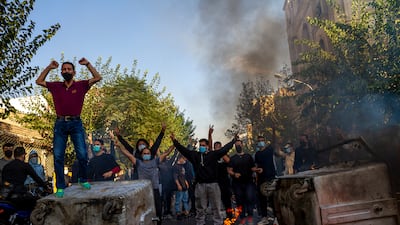Iran’s supreme court has overturned the death sentence of a protester convicted of killing a policeman last October during nationwide protests against the death of a Kurdish woman in custody.
Mohammad Ghobadlou was sentenced to death for “corruption on Earth” after a court found him guilty of “attacking police officers, one of them fatally”, in a car-ramming incident during a demonstration.
“The supreme court quashed the death sentence … against Ghobadlou and referred his case to a new jurisdiction to deal with issues relating to his mental health,” Iran's Mehr news agency reported.
Ghobadlou's family had appealed for clemency from the court on the grounds that he suffers from bipolar disorder.
Iran issued a number of death sentences during its repression of the protests sparked by the death of Iranian-Kurdish woman Mahsa Amini, and carried out seven of the executions since last year, leading to international condemnation and more western sanctions
Ms Amini, 23, died last September in police custody after being stopped by the morality police for ignoring Islamic dress code.
Her family said she fell into a coma after being beaten by officers.
Her death set off one of the largest protests the country has witnessed. It started in the Iranian Kurdish community and spread across the country, drawing support from other minority groups, students, and trade unions.

Hundreds of protesters were killed during months of protests, which hit Iran’s economy and included strikes in the steel, oil and gas industries.
Dozens of police officers were killed during the protests, which Tehran said were riots instigated by foreign governments.
Authorities made thousands of arrests of protesters and their sympathisers.

